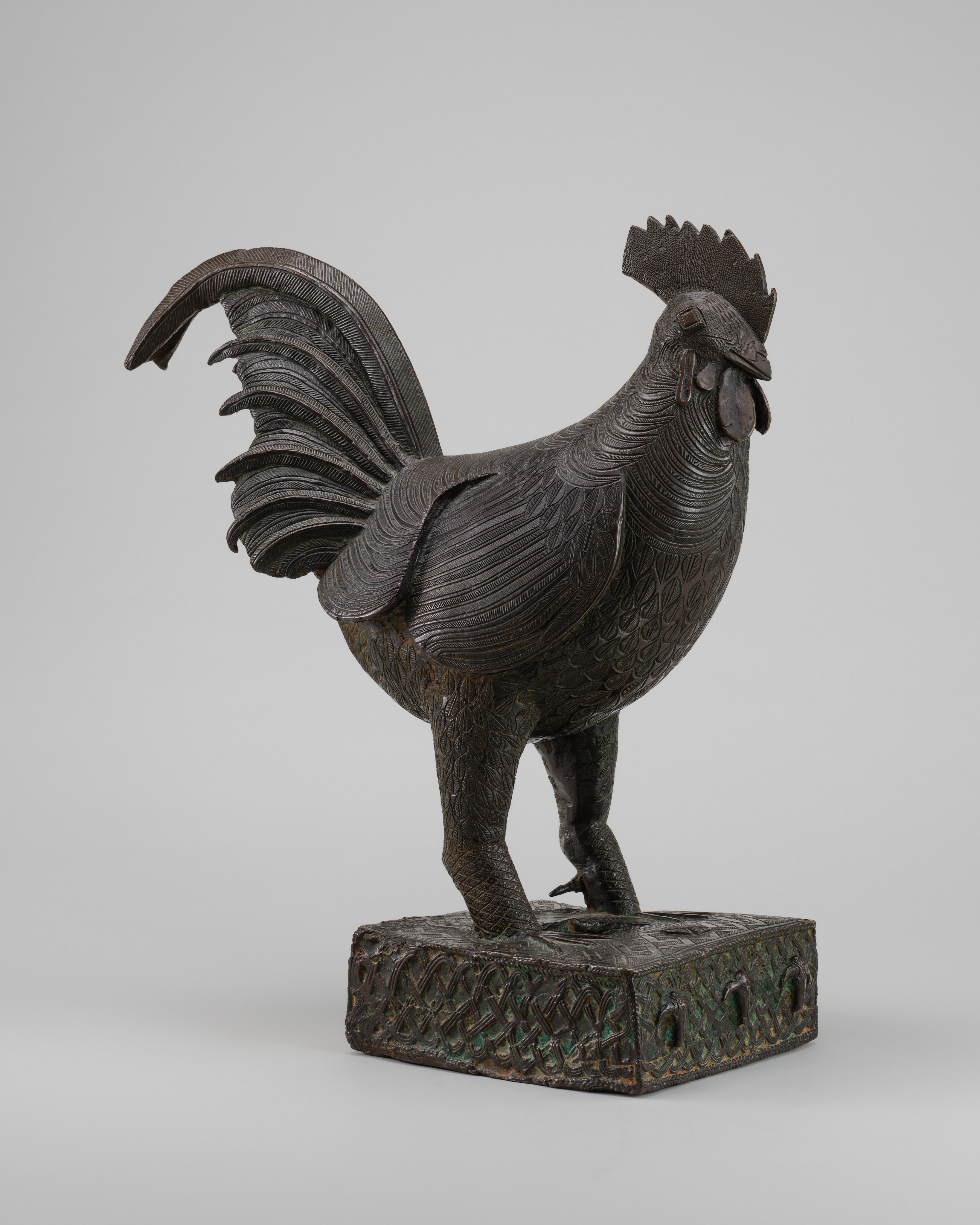
The National Gallery of Art in Washington, DC, will return a Benin bronze cockerel from its collection to Nigeria, making it the latest Western institution to agree to repatriate artworks stolen from the royal palace in Benin by invading British troops in 1897.
The bird dates to the mid-18th century and passed into the museum’s collection in 1955 through a New York-based gallery owned by dealer J.J. Klejman. The object is the only stolen Benin bronze in the NGA’s collection, according to the Art Newspaper.
“The National Gallery is eager to work with the relevant parties in Nigeria, including the federal government of Nigeria, to transfer ownership and possession of this object on a mutually agreeable schedule and terms,” an NGA spokesperson said.
The object is similar to another cockerel returned to Nigeria by Jesus College at the University of Cambridge in October. The Metropolitan Museum of Art, which returned three other objects to Nigeria last week, also owns one of the cockerel sculptures, known as Okukor, which were placed on ancestral altars to honor queen mothers in Benin.
Klejman, the New York dealer who passed the work to the NGA, was born in Poland and emigrated to the United States, where he and his wife opened a gallery on Madison Avenue in 1950. According to the memoirs of the late Met director Thomas Hoving, Klejman was a well-connected “dealer-smuggler” who traded in antiquities with questionable provenances.
Other institutions, including the Smithsonian National Museum of African Art, which is also in Washington, are now working to identify looted artworks within their collection and begin the process to repatriate them.
Last month, the Smithsonian museum removed 10 of its 16 Benin bronzes from display as a signal of its intentions.
In yet another sign of the changing tides regarding restitution, the German government and the Nigerian National Commission for Museums and Monuments announced plans earlier this year to transfer more than 1,000 bronzes from German museums back to Nigeria.